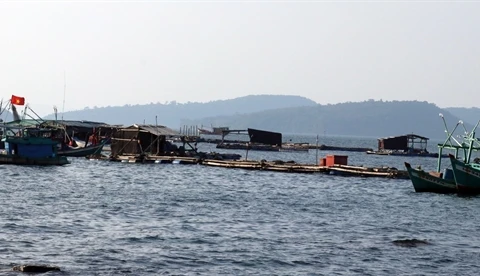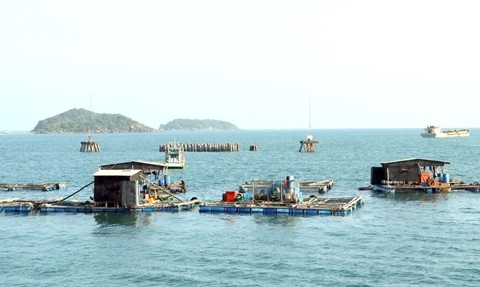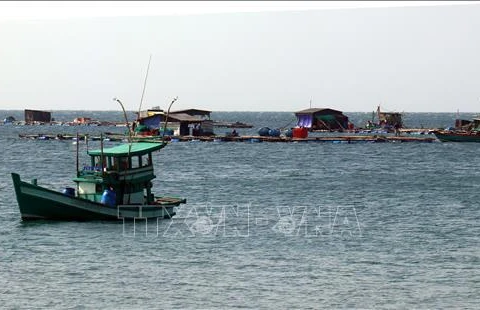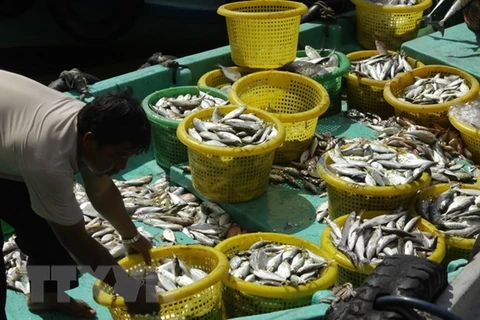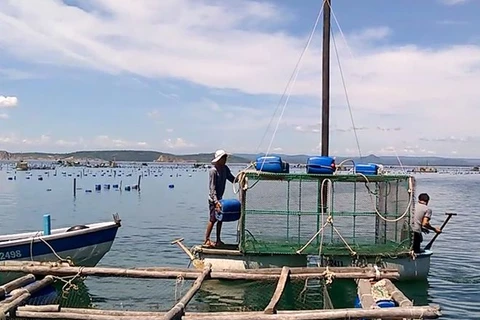Hanoi (VNA) – The Mekong Delta province of Kien Giang will develop sea aquaculture, focusing on breeding fish in floating cages and bivalve mollusc farming effectively and safely, thereby contributing to enhancing agricultural economic growth in the context of the COVID-19 pandemic, according to the provincial Department of Agriculture and Rural Development.
The province's number of fish cages at sea will rise to 5,500 with an expected output of 5,200 tonnes in the remaining months of the year.
The bivalve mollusc farming area will cover 25,560 hectares and is hoped to produce nearly 75,000 tones while clam breeding area will account for 250 ha with an projected output of 150,000 pearls, the department said.
Regarding fish cage farming at sea, the province will raise fish in a concentrated area and promote sustainable production linkages in the communes of Hon Nghe (Kien Luong district), Lai Son (Kien Hai district), Tien Hai (Ha Tien city) and Ganh Dau (Phu Quoc city) with such species as grouper, pompano and snapper.
It will also breed bivalve molluscs in coastal areas in the districts of Kien Luong, Hon Dat, An Bien, and An Minh with species like sea mussels and blood cockle, while raising clams for pearls in Phu Quoc.
To achieve the goal, relevant agencies were assigned to coordinate with districts and cities which engage in marine aquaculture to provide training and disseminate information relating to regulations on licensing marine aquaculture and issuance of identification codes for cage farming to residents. They would also receive and processe applications for licences for marine aquaculture, field trip surveys, and allocation of marine areas for aquaculture.
Organisations and households who take part in marine aquaculture will undergo training and be supplied with technical guidances on the fish cage and bivalve molluscs farming. A network of environmental monitoring and disease prevention and control relating to marine aquaculture will be built within areas approved by competent agencies.
Fish breeders will receive support in the application of scientific and technological advances with such new materials as plastic cage structures or lighting on rafts with solar energy./.

